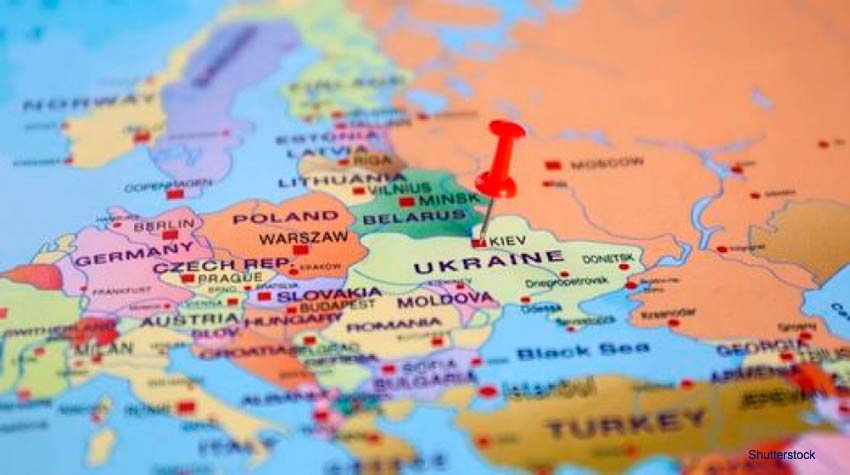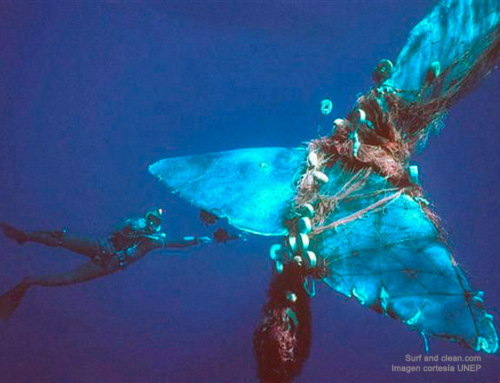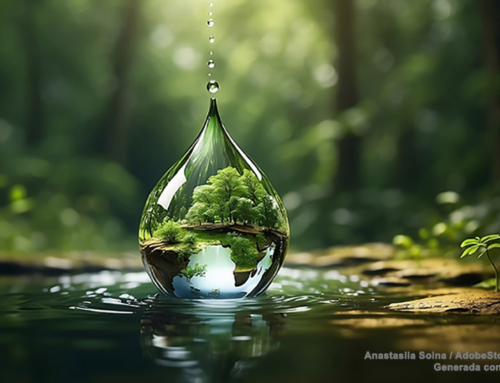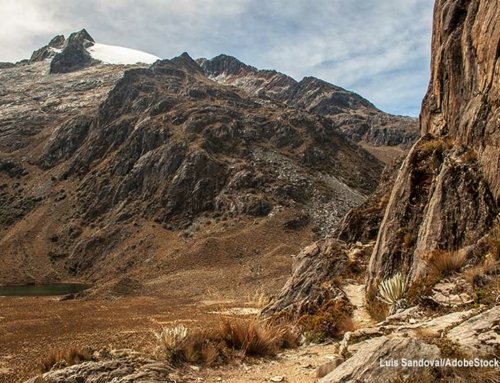Four years ago, when we published our set of “Frequently Asked Questions about the Paris Agreement”, in the one marked as number seven we asked: What are the dangers that can affect the Paris Agreement? In response, we placed 11 causes that could implode the climate agreement. One of them says: a generalized war that distracts governments from the fight against climate change.
Today, the much-feared war, although for now not generalized, is a reality that enters our homes every day. Through the images we have seen the horrors, cruelties and threats suffered by the men, women, and children of Ukraine.
Could the war in Ukraine distract governments from the fight against climate change?
The concern about the war in Ukraine with regard to the distraction of governments from the fight against climate change was clearly expressed by Antonio Guterres, on the sidelines of the recently held Economist Sustainability Summit, London:
“The pandemic, the war in Ukraine and the lack of political will undermine efforts to stop global warming. Plans to replace Russian fuels with whatever alternative is available could fuel the destruction, and he urged not to abandon the goal of limiting global temperature rise to 1.5 degrees Celsius by the end of the century.” The UN Secretary-General was emphatic: “The war in Ukraine threatens to blow up the Paris and Glasgow climate accords.” Guterres explained “that short-term measures taken by large economies to meet that shortage with the options available risk creating a dependency on fossil fuels in the long term, closing the possibility of limiting the increase in global temperatures to 1.5°C by the end of the century with respect to pre-industrial levels”.
All indicates that, for an indefinite time, we will go against the prescriptions of the Paris Agreement. Thus, it is worth asking: what to do then?
- Continue buying gas from Russia?
It should not be in the current circumstances, and in any case not in the medium term since the effort would have to be oriented towards the production of renewable energies.
- Reactivate coal mines?
It is not convenient unless it is for a short time during the current climate emergency since coal is the most polluting fuel on the planet.
- Build new atomic reactors and reopen existing ones?
If any country is going to invest money in this, it would be desirable for it to do so in the construction of electrolyzers to produce green hydrogen, which is emerging as the star energy of the energy transition.
Putin’s gas pipelines
For Putin, supplying millions of cubic meters of gas a year has so far been a very easy business. All he had to do was sit back in his chair, let the gas flow through his pipelines and wait for spurts of euros back. This situation, however, it may be will no longer return to its pre-war status.
A few years ago, there was a joke among oil people, quite close to reality: Someone asks what is the best business in the world? Answer: a well-managed hydrocarbon company. And the second-best business? A mismanaged hydrocarbon company. Well or poorly managed, that was the business that Putin took advantage of for many years.
Criticism of Angela Merkel
Angela Merkel is being criticized for her enthusiasm to boost Russian gas supplies for Germany. Perhaps its detractors ignore the history and motivation behind it, as we explained in another of our articles, published in 2019: “Can the multiplication of gas pipelines in Europe face the Paris Agreement?” On that occasion, we pointed out that Russia was a long-standing supplier of natural gas to Europe, whose history dates back to the time of the Soviet Union, from the mid-1980s. At that time, the Siberian gas pipeline was put into operation, which, after traveling almost five thousand kilometers, it ended in Germany.
After the dissolution of the USSR, business between Berlin and Moscow continued, as did the supply of Russian gas to Germany and Europe. This is what Russia has taken advantage of to fill its coffers with euros and dollars for decades. However, few people realized that Putin’s business had its Achilles heel. Rather, Europe was criticized for its excessive dependence on Russian gas and the danger that the fuel could be used as a weapon of war by Russia. But the gas pipeline has turned out to be a two-way weapon and it is Putin who could probably backfire, since Europe could be determined not to continue buying fuel from Russia and seek alternative suppliers and energy sources.
We know that natural gas is a hydrocarbon of fossil origin, a contributor to the greenhouse effect. Its main and almost only component is methane. This gas is found in the atmosphere in a proportion 220 times lower than that of carbon dioxide, but its global warming potential is 23 times higher.
It is fair to recognize that the former chancellor, during his long administration, was a great promoter of the energy transition towards renewable fuels. It is not a small thing to have closed the coal mines, although the country maintains several open pit mines of lignite, a mineral coal with which it moves a third of its electricity industry. Of the 17 nuclear power plants that Germany had, only three remain operational, which will be closed by the end of 2022. In addition, two of its important oil suppliers plan to reduce their extraction, the Netherlands will start the reduction starting this year (2022) and plans to stop it in 2030 to fulfill with the Paris Agreement. Norway, for the same reason, will produce less in the future. The sum of these three actions projected a significant energy deficit for Germany.
This situation forced the country to increase its purchases of Russian gas, origin of the Nordstream and Nordstream II gas pipelines, two systems of two tubes each one, whose branches run side by side through 1,224 kilometers of underwater pipelines through the bottom of the Baltic Sea. They have a capacity to transport 55 million cubic meters of gas per tube per year. Nordstream II has not been authorized to go into operation. This dependence of Germany on Russian gas is supposed to be a temporary measure while the country advances in its energy transition towards zero fossil fuels, and thus be able to comply with the Paris Agreement.
The energy transition is in full swing
To conclude, it must be said that solar energy, wind energy, electromobility and green hydrogen, the bases of the energy transition, are in full swing and are increasingly in better shape and stronger.
Earlier than later, renewable energy will prevail, and the Paris Agreement and humanity will come out ahead. At that time, hydrocarbons will only be seen in encyclopedias and history books, just as we see the steam machines today.
Sandor Alejandro Gerendas-Kiss







Leave A Comment